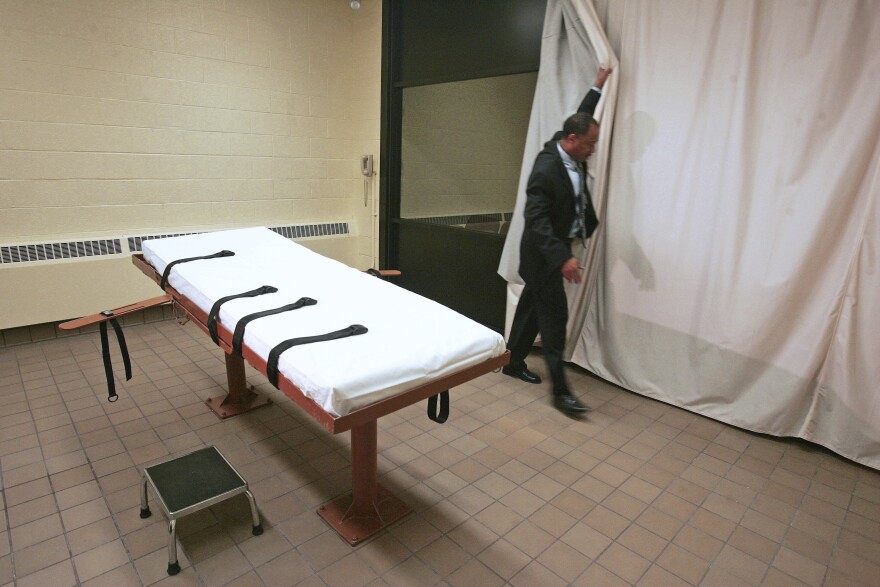Republican Ohio Gov. Mike DeWine extended the state's unofficial death penalty moratorium once again Thursday as he postponed three more executions that had been scheduled for this year.
The governor's announcement again cited the state's inability to secure the drugs used in lethal injections due to pharmaceutical suppliers' unwillingness.
President Donald Trump signed an executive order in January directing Attorney General Pam Bondi to help states try to resolve that issue. But DeWine has said he does not anticipate any more executions happening during his governorship, which runs through 2026.
The newly postponed executions are in the cases of Percy Hutton, from June 18, 2025, to June 21, 2028; Samuel Moreland, from July 30, 2025, to July 19, 2028; and Douglas Coley, from Sept. 24, 2025, to Aug. 15, 2028.
Last month, four Ohio lawmakers said they are preparing to introduce identical bipartisan bills that deal with what they call end-of-life procedures.
Their proposal would abolish the death penalty in Ohio—a perennial but historically standalone piece of legislation—and also reaffirm bans on state funds going toward physician-assisted suicide or abortion. Under the Ohio Revised Code right now, physician-assisted suicide can be criminally punishable, and abortion clinics already can’t receive state funds.
Rep. Jean Schmidt (R-Loveland) and Adam Mathews (R-Lebanon) are sponsoring the House version, while Sens. Nickie Antonio (D-Lakewood) and Steve Huffman (R-Tipp City) are sponsoring the Senate version.



